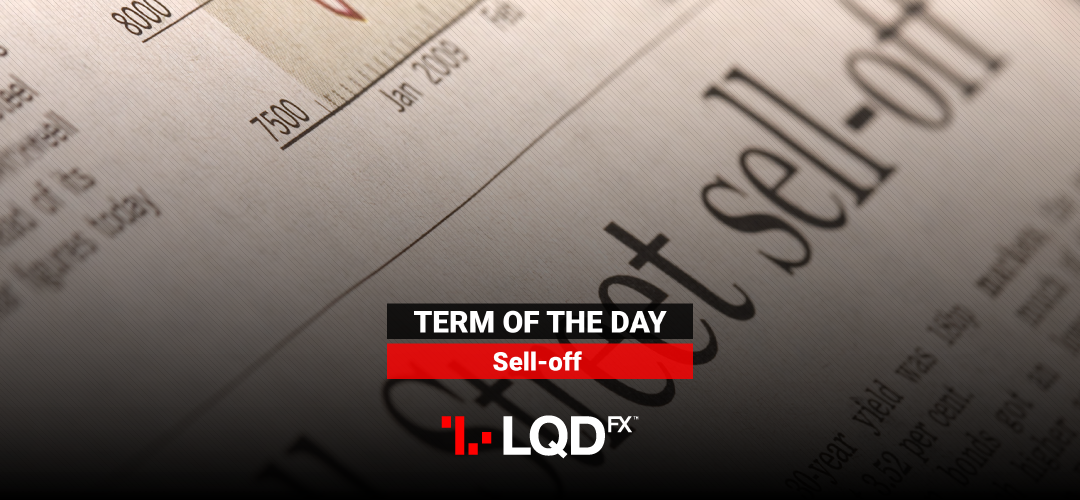Sell-off is the quick sale of financial instruments such as stocks, bonds, commodities or currencies. Rapidly falling prices and panic can also characterize it.
A sell-off may occur for many reasons. In the stocks market the sell-off of a company’s stock after a disappointing earnings report, the departure of an important executive or the failure of an important product.
Markets and stock indexes can also sell-off when interest rates rise or oil prices surge, causing increased fear about the energy costs that companies will face. Sell-offs can also be caused by political events, or terrorist acts.
In the Forex market sell-offs usually take place in case of events that traders cannot foresee or expect. Negative, unusual or other than expected developments on economic activity can also cause a Forex market sell-off.
For example, Trump’s unusual criticism of Fed’s interest hikes back in August 2018 led to a dollar sell-off. While he was interviewed by Reuters Trump said he is “not thrilled with Powell’s raising of interest rates”. Although he did not accuse the US Central Bank directly for tightening monetary policy, his comments were unusual for a US President. Taking into consideration Fed’s independence, markets reacted adversely to Trump’s statements seeing them as a threat.
The great Gordon Brown’s gold sell-off
Back in 1999 Gordon Brown decided to sell approximately half of the UK’s gold reserves in a series of auctions. At the time of the announcement of the decision, May of 1999, the UK’s gold reserves were worth about US$6.5 billion. It accounted for about half of the UK’s US$13 billion foreign currency net reserves. Brown’s actions, the then UK Chancellor of the Exchequer (who later became Prime Minister), have attracted considerable criticism, particularly concerning his timing, his decision to announce the move in advance, and the use of an auction.
Sources: Investopedia, Wikipedia
PLEASE NOTE The information above is not investment advice.
